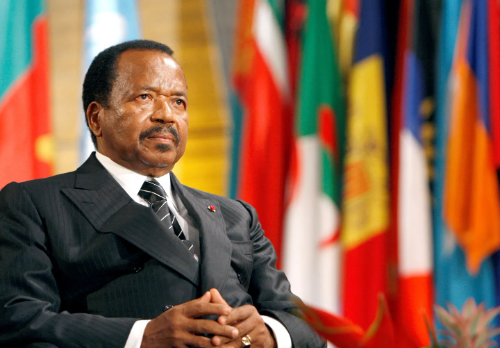President Paul Biya Re-Elected for Eighth Term in Cameroon

TLDR
- Cameroon’s president Paul Biya, aged 92, has been declared the winner of the October 12 presidential election
- His main rival, Issa Tchiroma Bakary, reportedly came in second with 35.19 %, though he rejected the results and claimed victory himself
- Biya has been in power since 1982, making him one of the world’s longest-serving leaders and also the oldest
Cameroon’s president Paul Biya, aged 92, has been declared the winner of the October 12 presidential election, securing 53.66 % of the vote, the country’s Constitutional Council announced on Monday. His main rival, Issa Tchiroma Bakary, reportedly came in second with 35.19 %, though he rejected the results and claimed victory himself.
Turnout was estimated at around 57.7 % according to the official figures. The election has already triggered unrest: security forces clashed with protesters in Garoua and Douala, with at least four people reported killed.
Biya has been in power since 1982, making him one of the world’s longest-serving leaders and also the oldest. His re-election now sets the stage for him to remain in office until nearly the age of 100.
Daba is Africa's leading investment platform for private and public markets. Download here
Key Takeaways
Paul Biya’s victory underscores long-standing stability under his rule, but also deepens questions about political renewal and legitimacy in Cameroon. After more than four decades in office and the removal of presidential term limits in 2008, Biya remains firmly in control at a time when younger generations and opposition forces are demanding change. The opposition’s rejection of the results — combined with reports of violence, internet restrictions, and banned assemblies — suggests the potential for further unrest if grievances persist. Economically, Cameroon confronts persistent challenges, including youth unemployment, corruption, and a conflict in its Anglophone regions. Biya’s new term could offer continuity in governance, but it will likely hinge on delivering tangible improvements for citizens and managing security risks stemming from both separatist forces and regional instability. Failure to do so could fuel mounting frustration and widen the gap between a long-standing ruling elite and a generation seeking change.

Next Frontier
Stay up to date on major news and events in African markets. Delivered weekly.
Pulse54
UDeep-dives into what’s old and new in Africa’s investment landscape. Delivered twice monthly.
Events
Sign up to stay informed about our regular webinars, product launches, and exhibitions.




